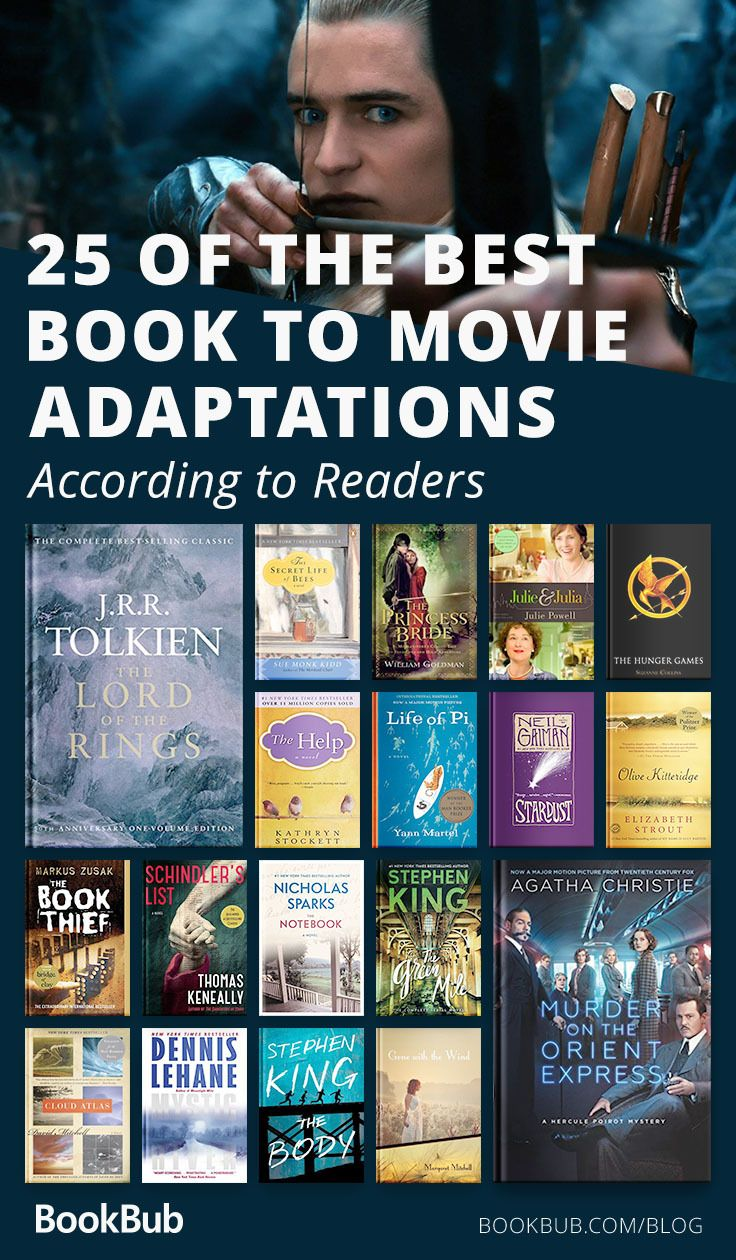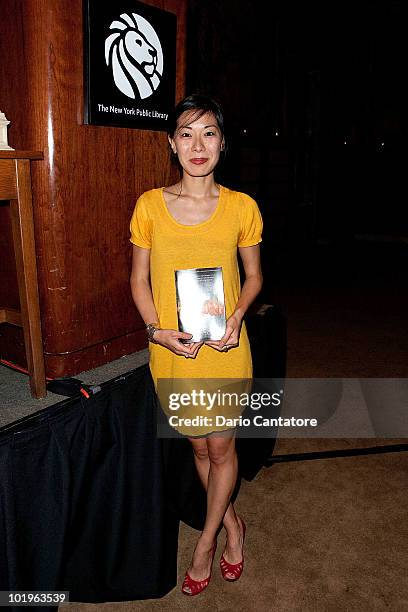Book to film adaptations have long sparked debate among audiences, with the familiar phrase “the book was better” often echoing in theaters and conversations alike. Yet, when executed thoughtfully, these adaptations can breathe new life into stories, presenting them in a way that resonates with both new spectators and loyal readers. As we approach this year’s Oscar season, several standout films adapted from books, like “Conclave” and “The Nickel Boys,” lead the nominations, showcasing the enduring power of novel adaptations. From thrilling thrillers to heartfelt dramas, the best book adaptations can illuminate the complexities of their source material while also delivering a fresh perspective that captivates viewers. Whether it’s iconic works by Stephen King or contemporary tales, the realm of movies based on books invites us to explore and appreciate the art of storytelling through multiple mediums.
The cinematic transformation of literary works offers a fascinating avenue for exploration, often bridging the gap between the written word and visual storytelling. Adaptations of novels into feature films or series provide an opportunity to revisit beloved characters and narratives, offering audiences a chance to experience familiar tales from different angles. Directors and screenwriters often face the challenge of distilling the essence of a story while incorporating their unique vision, sometimes resulting in Oscars nominations for outstanding achievements in adaptation. As we delve into this landscape, it becomes clear that whether they uphold their literary roots or embark on a creative reinterpretation, film adaptations of books can provoke discussions and reflections on narrative, character, and the very nature of storytelling itself. It’s a dynamic interplay that continues to evolve, melding artistic expression with cultural commentary, and inviting audiences to engage in a dialogue about the stories we tell.
The Art of Book to Film Adaptations
Book to film adaptations have been a staple of the entertainment industry for decades, captivating audiences with their ability to bring beloved stories to life. While many adaptation attempts fail to capture the essence of the original work, others excel at breathing new life into the material. Films adapted from books are not just a way to retell a story; they often reinterpret themes and create unique cinematic experiences. This adaptability can highlight different perspectives, giving audiences fresh insights into characters and plotlines that they might not have considered while reading the novel.
The process of transforming a novel into a film requires a delicate balance between staying true to the source material and making necessary alterations for cinematic enjoyment. Some of the best book adaptations manage to encapsulate the spirit of the original work while introducing audiences to new elements that enhance the overall narrative. This is especially prevalent in Oscar nominations adaptations, where filmmakers succeed in merging literary depth with visual storytelling, creating timeless pieces that resonate with both readers and non-readers alike.
Why Some Films Are Better Than Their Source Novels
In the ongoing debate over whether the film or book is superior, many cinematic adaptations have proven to surpass their written counterparts. This can be attributed to effective storytelling techniques, strong performances, and visual artistry that can elevate the narrative beyond what words can convey. Films based on books like ‘Misery’ and ‘L.A. Confidential’ demonstrate how adaptations can capture not just the plot but the underlying emotions and thematic depth of the original novels, often leading to a profound impact on viewers.
Consider adaptations that take a mediocre novel and transform it into an engaging and thought-provoking film. Directors and screenwriters often use their creative licenses to cut extraneous details and focus on the core aspects of the story that resonate with audiences. Such adaptations can resonate with viewers on a different level, making them more memorable and impactful. Oscar nominations often reward these exceptional adaptations, recognizing the filmmakers’ skill in translating literary works into compelling cinematic experiences.
The Best Book Adaptations of All Time
Some works have transcended their original formats, with best book adaptations becoming classics in their own right. Films like ‘The Godfather’ and ‘To Kill a Mockingbird’ not only captured the essence of their source novels but also defined eras in cinematic history. These adaptations often illuminate the strongest themes of the original works, showcasing the struggle between good and evil or the quest for justice, while also incorporating stunning visuals and powerful performances that stick with audiences long after the credits roll.
Furthermore, many films adapted from books achieve critical acclaim, receiving prestigious awards and nominations, including several Oscar nominations. This recognition highlights the skill in adapting complex narratives that resonate with broader audiences. By delivering well-developed characters and compelling storytelling without straying far from the heart of the source material, these movies provide a multifaceted experience for viewers, making them some of the best adaptations to grace the silver screen.
Understanding the Challenges in Novel Adaptations
Adapting a novel into a film presents a unique set of challenges that filmmakers must navigate. One of the primary difficulties is condensing often extensive narratives into a time-limited format while retaining the essential elements that make the story engaging. Many excellent adaptations manage this through skilled writing and directing, effectively trimming unnecessary details and focusing on key moments that propel the story forward. This can lead to powerful cinematic experiences that may be even more intense than the original narratives.
Moreover, when turning highly intricate novels into movies, filmmakers must carefully consider how to portray complex characters and their internal conflicts on screen. Unlike novels, where internal thoughts can be explored in-depth, film must convey these feelings visually and through dialogue. Successful adaptations turn this challenge into an opportunity, producing films that share the emotional weight of the source material while offering new interpretations that resonate with an audience.
The Role of Producers and Directors in Adaptations
The vision of producers and directors plays a crucial role in the success of book adaptations. Their interpretation of the source material can dictate how the audience perceives a familiar story. A creative director with a fresh perspective can spotlight themes and subtext that may have been overlooked in the original work, bringing forth powerful performances and invigorating the characters in ways that readers never imagined. Masterful adaptations often exhibit a director’s ability to merge visual storytelling with literary depth, resulting in films that are considered both commercial and artistic successes.
Producers also play an indispensable role, overseeing the adaptation process and ensuring that the creative vision aligns with audience expectations and industry standards. Their decisions regarding the cast, budget, and marketing significantly impact how the film is received. A producer who understands the nuances of storytelling will champion a project that honors the source material while also striving to appeal to both devoted readers and newcomers, leading to adaptations that capture hearts and minds.
Exploring Genre Variations in Adaptations
Book to film adaptations span a wide range of genres, from horror to drama, comedy to fantasy, each presenting unique opportunities and challenges. For instance, horror adaptations like Stephen King’s ‘Misery’ must successfully evoke fear and tension while remaining loyal to the source’s psychological depth. The balance between horror elements and deeper character exploration can make or break such adaptations. Films that nail this balance not only frighten the audience but also evoke empathy for the characters.
On the other hand, adaptations of light-hearted novels or comedies can focus more on humor and relatability. These films often exaggerate certain traits of the characters or situations to create comedic atmospheres, allowing audiences to enjoy them in a wholly different way compared to their source material. Such genre variations allow filmmakers to explore creativity and innovation, often leading to new interpretations that breathe life into classic novels and present them in captivating ways.
Cinematic Techniques Enhancing Novel Adaptations
The use of cinematic techniques in book adaptations helps construct a narrative that can resonate with viewers on a visual level. Techniques such as visual metaphor, symbolic imagery, and sound design can amplify the emotional undercurrents of the source material. For instance, a film that skillfully uses lighting and camera angles can evoke the same feelings that readers experience through word choice in a novel. These visual storytelling methods are essential for creating memorable adaptations that linger long after they’ve been viewed.
Moreover, as technology evolves, filmmakers employ new tools that enhance cinematic adaptations. Innovations in special effects and CGI enable adaptations of fantastical works, which were once deemed impossible to portray accurately, to come alive on the screen. This integration of modern cinematic techniques not only retains the essence of the original material but also draws in new audiences who might not have engaged with the book. As a result, successful adaptations become a perfect blend of innovative storytelling and classic literature.
Reimagining Classics for Modern Audiences
In an era where themes of social justice and diversity are at the forefront of cultural conversations, many classic novels are being reimagined for modern audiences. Adaptations now take into consideration the cultural sensitivities and social issues relevant today, offering new interpretations that challenge original narratives. This approach allows filmmakers to highlight voices and stories that may have been overlooked, providing fresh perspectives for new generations to explore.
The process of reimagining classics does not merely serve to modernize; it also revitalizes the conversation around these works and expands their relevance. Films adapted from classic literature that tackle contemporary themes have the potential to inspire audiences to engage with the original novels and foster discussions that reflect the evolution of society. By keeping the essence yet altering the narrative lens, these adaptations continue the legacy of great literature while ensuring its impact on future viewers.
Frequently Asked Questions
What are the best book adaptations that have received Oscar nominations?
Several films adapted from books have earned Oscar nominations, including popular titles like ‘The Godfather,’ ‘To Kill a Mockingbird,’ and more recently, ‘Nomadland’ and ‘The Power of the Dog.’ These adaptations often bring the rich narratives of their source material to life while earning critical acclaim during awards season.
Are there any famous movies based on books that improved the original story?
Yes, there are many movie adaptations that enhanced their original books. For instance, ‘The Shawshank Redemption,’ based on Stephen King’s novella, is praised for its emotional depth that the film effectively magnifies. Similarly, adaptations like ‘Stand By Me’ and ‘Misery’ provide unique perspectives that resonate strongly with audiences.
What makes novel adaptations successful compared to their source material?
Successful novel adaptations often distill complex plots down to their essence, creating a focused narrative that resonates well with an audience. Films like ‘L.A. Confidential’ expertly capture the tone and themes of the novels while enhancing character development and visual storytelling.
What are some popular films adapted from books that are considered better than the original?
Films like ‘Fight Club’ and ‘American Psycho’ have become cultural phenomena often regarded as superior to their original books. These adaptations reimagine the narratives, delivering sharp commentary and powerful performances that elevate the source material.
Can you name recent best book adaptations featured in awards shows?
Recent award-winning adaptations include ‘Little Women’ (2019), ‘The Trial of the Chicago 7’ (2020), and ‘Dune’ (2021), which have garnered both audience attention and critical acclaim, showcasing the capability of films adapted from books to shine on major platforms.
How do filmmakers choose which books to adapt into movies?
Filmmakers often look for books with compelling characters, rich narratives, and visual potential. The popularity of the source material, the depth of its themes, and the potential for cinematic storytelling are also critical factors in selecting novels for adaptation.
Why do some viewers feel that the book is always better than Oscar-nominated adaptations?
Many feel that the richness of a book’s inner thoughts and nuanced character development can be challenging to convey in film. Adaptations often compress plots and characters, leading some fans of the original to perceive that key elements or emotional depth are lost in translation.
Are there any adaptations of books that are considered underrated?
Indeed, films like ‘The Handmaid’s Tale’ and ‘Where Are You Going, Where Have You Been?’ are often underrated adaptations that successfully capture the essence of the original works while introducing fresh interpretations that enhance their narratives.
What key elements make a successful transition from book to film in adaptations?
Successful adaptations typically maintain the thematic core and character arcs of the source material while making necessary adjustments for pacing and audience engagement. Visual storytelling, strong performances, and faithful yet inventive direction are crucial in bridging literature and cinema.
| Title | Author | Key Points | Film Title | Notes on Adaptation |
|---|---|---|---|---|
| Misery | Stephen King | A horror novel exploring fame and success through a writer and his deranged fan. | Misery (1990) | Faithful but loses some insights on writing and reading. |
| L.A. Confidential | James Ellroy | A gritty depiction of 1950s Los Angeles and Hollywood’s moral rot. | L.A. Confidential (1997) | Nails the characters but significantly edits the plot for film. |
| Jack Reacher series | Lee Child | Mystery/thriller series focusing on an ex-military officer with thematic depth. | Jack Reacher (2012, 2016) & series on Amazon | Films highlight melodramatic structure of the stories. |
| The Hoods | Harry Grey | Semi-autobiographical account of a Jewish gang during Prohibition. | Once Upon a Time in America (1984) | Adaptation transcends the novel, focusing on imagery and music. |
| American Psycho | Bret Easton Ellis | A dark exploration of consumerism and moral emptiness. | American Psycho (2000) | Brings humor and liveliness to the originally darker narrative. |
| Where Are You Going, Where Have You Been? | Joyce Carol Oates | Focuses on teenage angst and a menacing encounter. | Smooth Talk (1985) | Expands character depth and modifies the ending for emotional impact. |
Summary
Book to film adaptations can often generate intense discussions among audiences, with the common refrain “the book was better” often echoing in conversation. However, as explored in recent recommendations from Harvard faculty, many adaptations elevate their source material by capturing the essence of the story while also adding new dimensions. From the psychological horror of “Misery” to the dark humor of “American Psycho,” effective adaptations can provide fresh perspectives, allowing audiences to appreciate the source material in unexpected ways. Ultimately, while not every book-to-film transition succeeds, those that do often resonate deeply, proving that some stories are indeed better shared on the silver screen.



